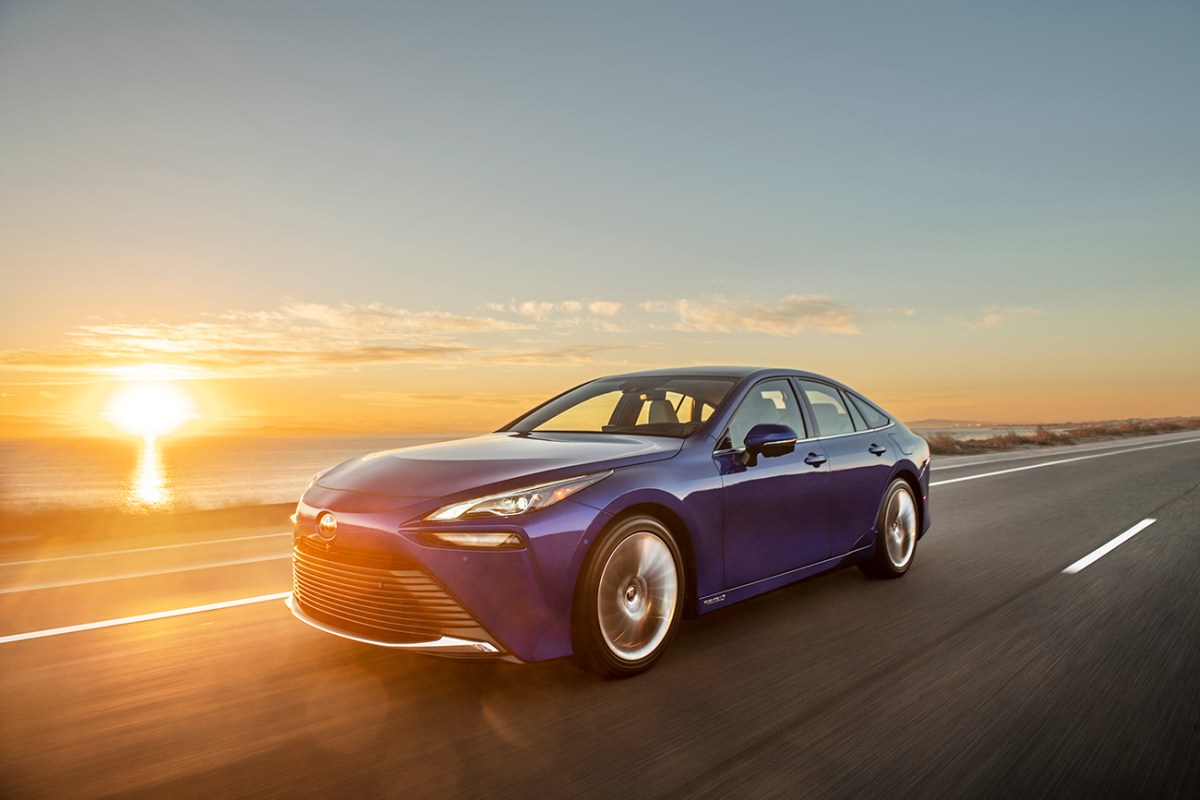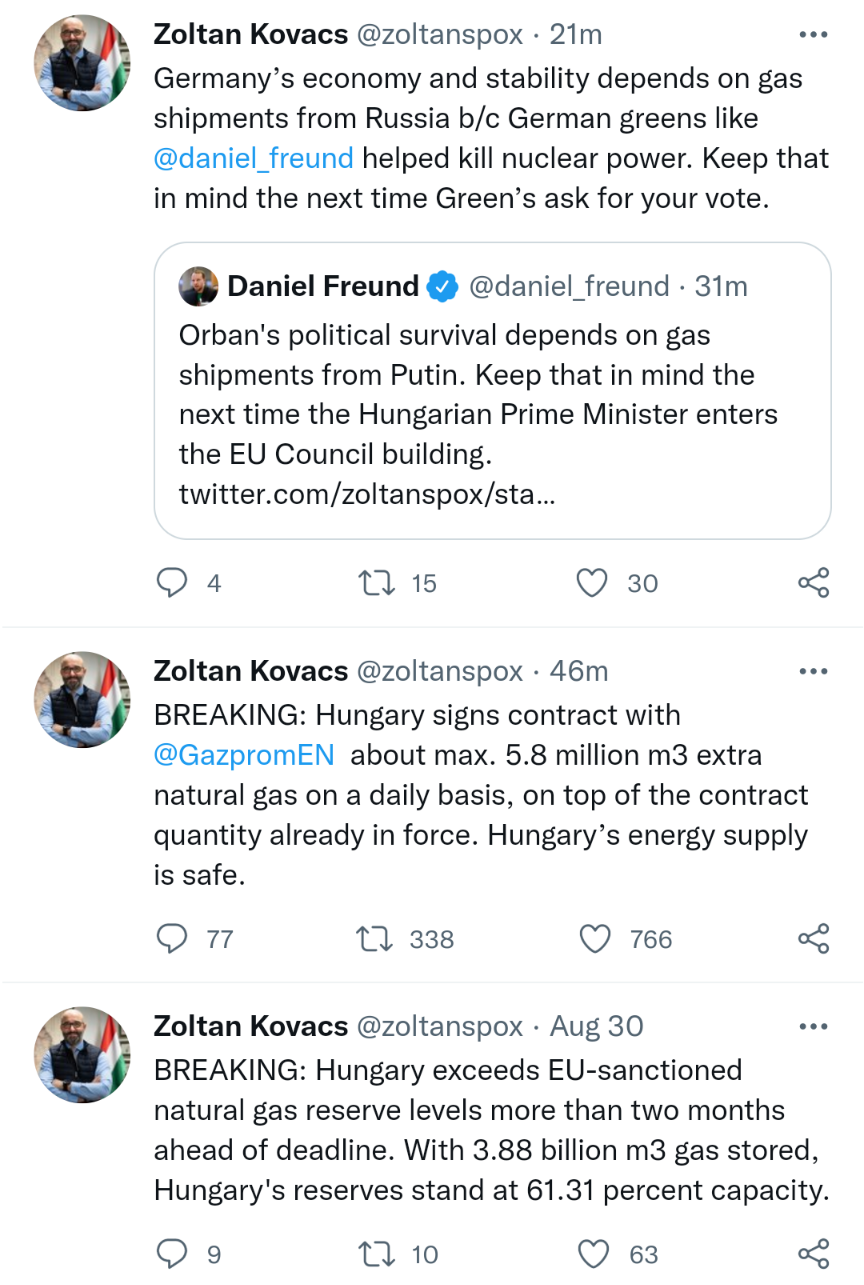Join the Hide community
Get access to live stream, lessons, the post exchange, and chat with other snipers.
Register
Download Gravity Ballistics
Get help to accurately calculate and scope your sniper rifle using real shooting data.

Install the app
How to install the app on iOS
Follow along with the video below to see how to install our site as a web app on your home screen.
Note: This feature may not be available in some browsers.
You are using an out of date browser. It may not display this or other websites correctly.
You should upgrade or use an alternative browser.
You should upgrade or use an alternative browser.
PortaJohn
- Thread starter Lowlight
- Start date
-
- Tags
- sniper's hide
Feds Pinpoint Nearly 30k Mexican Passport Holders With Middle Eastern Names in Fraud Investigation
Federal law enforcement officials have identified a spike of individuals with Middle Eastern sounding names traveling with Mexican passports, according to an internal Department of Homeland Security memo reviewed by the Washington Free Beacon.
Funny thing tho..... ain't working. We're gaining traction.

Ummm. Ok.True to a point, but in places like Iceland and then having more geothermal then they know what to do with, great plan....also all the renewables are fantastic at this.
I think you might be looking at it wrong, hydrogen is not a battery, it is a fuel. Just as gasoline and even oil is a fuel, the costs of making the oil into something we can use, from plastic to gas are long set and have had time to figure out the best ways to do this. With hydrogen being new that is not figured out yet.
I remember reading about Standard Oil, it was called standard because they did the refine process the same way each time and they used the same types of oil the same time. Back when oil from the ground was replacing other oils it was the new thing, and people did not like it as it just did not burn the same way every time, so when ole Rockefeller made it "standard" people started to like it more and well the rest is history.
I can see how you would think it is a battery, but it really is not, it in and of itself is not storage of energy. I think you would be more correct in saying it takes more to "refine" it then it does an oil product.
It’s obvious that even horrible batteries are more efficient than hydrogen. If it were a “fuel” it would be more popular than batteries.

Study confirms what common sense has made clear for years: Hydrogen fuel cells cannot catch up to battery-electric vehicles
A new study published in the peer-reviewed journal Nature has confirmed what common sense has made clear for years: Hydrogen...
 electrek.co
electrek.co

Hydrogen Fuel Cells vs Batteries: Which Is Better?
Are hydrogen fuel cells better than batteries? Which technology will win as the primary power source for EVs? YouTuber "Physics Girl" investigates.
Saw in another article they are releasing the new booster shot after labor day. This article states they are going from 30 micrograms to 50. Hurray for more spike proteins? Oh boy...
MSN
www.msn.com
Ummm. Ok.
It’s obvious that even horrible batteries are more efficient than hydrogen. If it were a “fuel” it would be more popular than batteries.

Study confirms what common sense has made clear for years: Hydrogen fuel cells cannot catch up to battery-electric vehicles
A new study published in the peer-reviewed journal Nature has confirmed what common sense has made clear for years: Hydrogen...electrek.co
View attachment 7945907

Hydrogen Fuel Cells vs Batteries: Which Is Better?
Are hydrogen fuel cells better than batteries? Which technology will win as the primary power source for EVs? YouTuber "Physics Girl" investigates.www.motorbiscuit.com
That is 180 from everything I have seen written about it. Batteries are....at least from what I understood....are the single worst think in the energy density area in every chart I have seen. With hydrogen being the best, and it should be it is an atomic number of 1. There is nothing smaller.

Energy Density of some Combustibles | The Geography of Transport Systems
 transportgeography.org
transportgeography.org
Electric cars are so hard to put your finger on. The electricity to do it can come from dozens of different sources, and your local power production can be very different from the next guy over. They key thing however is it is not clean by a long shot, and electric cars are very far from being as green as they tell us they are.
Electric cars do have their place, but it is not the magic bullet that so many seem to think they are, in some areas they are the single worst ways to move X from Y to Z. Ever wonder what happened to the Tesla over the road truck, it went the same way the nikola over the road truck. So many of these things start to fall apart when you look at them close. And so many things stated in many "pro battery" sites are just flat false. Oh well, I look at it like I will not be around to watch it all fall apart.
Or ClintonizedBetter speak now or forever become a meme.......
You know the victims could just stand on a soapbox and shout to the world who did this to them........a big enough bullhorn they can not be ignored.
You have to understand the total mind fuck the victims of this type of crime have to deal with. It can really screw up a persons thinking.....heck just ask Ashly Biden.

In the Battle Over the Right to Repair, Open-Source Tractors Offer an Alternative
Proponents say an open-source farm equipment ecosystem is key to a future of more innovative, repairable, and environmentally adapted tools.

Last edited:
That is not science, or even syence. This is advertising.
Tell it to the Afgans. They won against the Russians, and the won against the americans. Don't think they had any F-15's. How about the vietmanese? They had a few planes. You can win you idiot old man, but you will need to play the long game something you don't understand.
That is not science, or even syence. This is advertising.
Agreed. But, imho, that's all any of this shit we've seen in the last 2.5 years is: a deliberate disinformation operation designed to get us to buy something that isn't very good for us.
This means they are scared shitless! Lmfao
If we are going to be forced into playing the part of the insurgents for simply wanting to retain our rights - we don't have to win militarily. Only continue to exist while the communists and WEF protagonists in office are destroyed politically. Build Back Better doesn't work if half the population doesn't want the system destroyed to make it in need of rebuilding.Tell it to the Afgans. They won against the Russians, and the won against the americans. Don't think they had any F-15's. How about the vietmanese? They had a few planes. You can win you idiot old man, but you will need to play the long game something you don't understand.
That is 180 from everything I have seen written about it. Batteries are....at least from what I understood....are the single worst think in the energy density area in every chart I have seen. With hydrogen being the best, and it should be it is an atomic number of 1. There is nothing smaller.

Energy Density of some Combustibles | The Geography of Transport Systems
transportgeography.org
Electric cars are so hard to put your finger on. The electricity to do it can come from dozens of different sources, and your local power production can be very different from the next guy over. They key thing however is it is not clean by a long shot, and electric cars are very far from being as green as they tell us they are.
Electric cars do have their place, but it is not the magic bullet that so many seem to think they are, in some areas they are the single worst ways to move X from Y to Z. Ever wonder what happened to the Tesla over the road truck, it went the same way the nikola over the road truck. So many of these things start to fall apart when you look at them close. And so many things stated in many "pro battery" sites are just flat false. Oh well, I look at it like I will not be around to watch it all fall apart.
Energy density is only a part of the overall picture.
Keep in mind first that the article is specifically talking about hydrogen fuel cells which is pretty much how just about all the current generation hydrogen vehicles use hydrogen. The hydrogen is NOT burnt in an internal combustion engine to provide the force to move the vehicle, rather the hydrogen is used to make electricity which then provides the force to move the vehicle.
Due to the economy of scale as well as the technical complexity, it is currently much easier / cheaper to build a battery powered vehicle than a hydrogen fuel cell vehicle.
Hydrogen isn't all that easy to just get without a fair bit of energy to get it. The two main commercial ways are making it from natural gas or using electricity to make it. In both cases you could easily use the energy required to make hydrogen directly as the energy source instead of having an extra step or two with bringing hydrogen into the mix. You still need a pile of exotic/expensive mined materials.
Once your vehicle is built and delivered the problem for the rest of the life cycle of the vehicle is getting energy / fuel to it.
For a Natural Gas powered vehicle, NG is already in widespread use via a fairly efficient piping network, so building a fueling station requires installing the specialized equipment somewhere that already has NG going to it.
For a Battery Electric vehicle, it's even simpler, most places have electricity, delivered by an efficient distribution network. Now there is the issue that your generation / transmission capabilities may not be sufficient for widespread deployment, but assuming that can be managed / planned for it is something very much on the lines of upgrades to your existing system capacity or load demand scheduling.
When it comes to Hydrogen, distribution is much more difficult, with a great cost, time and complexity scale involved. Due to the nature of it, the hydrogen has to be transported in a very cold state by large tanker trucks and the process is a lot more complex due to Hydrogen heating up as it expands which requires special handling and equipment to keep everything going properly.
So all in all, by the time your hydrogen gas is powering your fuel cell to provide electricity for the electric motor in your hydrogen fuel cell vehicle to push your vehicle down the road, the all in cost for production and transport most likely exceeds the cost for just burning NG as your vehicle fuel or using electricity.
The range on hydrogen fuel cell vehicles currently is less than many higher end electric vehicles and you generally have all the same pollution problems at the production end and the same pollution issues in the transport side, so its an even more "not in my back yard" type issue when it comes to overall pollution, so it's NOT any more "green" or "sustainable" than just using electricity in a battery.
Demand is causing battery technology to rapidly evolve along with charging speeds.
It is very unlikely at this point that hydrogen power for your average road going vehicles will get anywhere near the widespread use that battery electric will.
If for some reason Electricity was to be too expensive to fuel a vehicle with, Hydrogen would probably be off the charts expensive.

FBI Boss Who Quit After Allegedly Blocking Hunter Biden Probe Also Reportedly Pushed To Pad Domestic Terror Data
A top FBI agent who resigned after allegedly undermining the probe into Hunter Biden also allegedly pressured bureau employees to pad domestic terror data.
If we are going to be forced into playing the part of the insurgents for simply wanting to retain our rights - we don't have to win militarily. Only continue to exist while the communists and WEF protagonists in office are destroyed politically. Build Back Better doesn't work if half the population doesn't want the system destroyed to make it in need of rebuilding.
There is also the whole Atlas Shrugged idea.
The left wing folks may want to destroy things so they can "build back better" their communist utopia but who are they counting on to do the building?
The good, decent, conservative folks are what keeps civilization running and enables all these evil people to do their evil by providing all the basic foundations to have a functional society.
If ever the good folks were to all stand up and shrug together with no scabs, the entire plans of the global elites would collapse and the sheeple would quickly die off from letting nature take it's course.

Latest DOJ Leak to Compliant Media: Biden DOJ Says Classified Documents Likely 'Concealed and Removed' at Mar-a-Lago -- They Sound Panicked, Did Trump Outwit Them? | The Gateway Pundit | by Jim Hᴏft
The Department of Justice under Biden claimed they had proof that “government records were likely concealed and removed” from the Mar-a-Lago storage room in an effort to “obstruct the government’s investigation” into former President Donald Trump, according to a court filing on Tuesday night.
The leftists will have to learn one thing about freedom loving conservatives. That is we don't like riding on trains and taking group showers. Enough said.
Maybe 5X faster than a Daisy BB gun?
Not enough energy density at 200 psi. What a joke. I want you to understand I’m not an armchair quarterback. I literally work in gas Measurment. With gas chromatography and BTU (energy) content every day. I’m not trying to be obstinate. It’s just the facts.It does not need that kind of pressure to work. Sounds like it was built to fail.
Jay Leno did a hydrogen thing years and years ago. I like his car stuff, I would be just like that if I had his money. A real gear head with the means to follow his dreams. The pressure in the range of LP tanks works just fine, and that stuff has been on the road for a very long time. They come out to my house twice a year to fill my LP tank.
The issue is holding it, the most itty bitty element known does not really want to stay where you put it, so there are challenges there. Using "renewables" to "make it" will work just fine. And it works like the cars we currently know and use, just like them, fill at the same rate, go as far, and not horrid on the planet both in terms of human as well as environmental as electric is. Electric cars are just horrid in those areas, look up cobalt mines in africa for a small taste of that. These folks get their hackles up when you talk about rare earth magnets, and cobalt, as that is all owned and run by some not very nice folk.

In the Battle Over the Right to Repair, Open-Source Tractors Offer an Alternative
Proponents say an open-source farm equipment ecosystem is key to a future of more innovative, repairable, and environmentally adapted tools.civileats.com

Being a country boy this is old news, but I am glad anytime more people learn about this. John Deere is pretty bad on all of this, and there have been several cases in several states about this.
Most people know more about how Apple runs their rail road, and it is the same basic thing that JD, as well as a few others are wanting to do.
The article talked about the same place IBM was in back in '81. They took the approach that anyone can do what they want with it, and now they look at and say, look at all the money we lost. The other side of that coin is with so many people working with your system and advancing it, look at what it has become. It is a much stronger system over the apple system, but all those different people making hardware for it does not make IBM a single dime. Force people that buy your product to only go to the "mothership" for all things and you have your hand in their wallet. This is the long time policy of Apple, and the reason I refuse to buy one of their products.
Not enough energy density at 200 psi. What a joke. I want you to understand I’m not an armchair quarterback. I literally work in gas Measurment. With gas chromatography and BTU (energy) content every day. I’m not trying to be obstinate. It’s just the facts.
View attachment 7945954
The pressure has nothing to do with the energy density. That is in the specific substance itself....basically, yea I know. By your thinking it would not burn if not under more pressure then 200psi.
I am not trying to be difficult as well, I am trying to learn here, I will freely admit if I am in error, and it is real possible that I am, I want the facts.
So if you had hydrogen in an open tank at a no pressure over normal, I am under the understanding that the hydrogen will rise, and the gas can be captured and used as a fuel.
I saw a video, hay it is on the interwebs so it must be true right? (part of what I am trying to learn fact from fiction) and he had one of those stainless steel hydrogen generators stuck in water, put power to it, and the water starts to bubble, we did this 40 years ago in science class in high school. This guy however had some kind of collector that would vent the hydrogen gas into an engine with (I guess called a mixer) used for LP with some changes to it he did not go into, and the engine ran. I understand this "mixer" thingy to be basically a carb for LP.
In my mind in Mrs. Blake in 8th grade science could make it go woosh with just a positive and neg cables run to it (I don't remember the voltage she used) that woosh sure seemed like gasoline vapor and that is really what you are trying to do with normal gas to make it burn, and any idiot (ME) that has ever been stupid enough to start a fire with gas knows it is the vapor that is the real worry.
We can take this to another thread if you want, I really do want to learn about this.
Here is the link to the Jay Leno video I was talking about.....time sure does fly, this was 14 years ago. I am sure a thing or two has been learned from the tape of that video.
Include "do you have a warrant?""No? Then you are trespassing."I had someone tell me yesterday that if this happens, he will close the door, call 911, and tell the police that there are people on his porch, with guns, claiming to be LEO's.......sounds like a fun way to start it out............
Hey C'mon now.Literally nothing
We've been waiting and watching and waiting and watching for a long long time....
Maybe it's finally going to get here?
And please don't let it be the biggest drag show of all time!
And simultaneously blowing the lung out of the pilot?Able to shoot down a F-15 cruising at 20,000 ft alt in seconds
You have an inherent misunderstanding of energy density:That is 180 from everything I have seen written about it. Batteries are....at least from what I understood....are the single worst think in the energy density area in every chart I have seen. With hydrogen being the best, and it should be it is an atomic number of 1. There is nothing smaller.

Energy Density of some Combustibles | The Geography of Transport Systems
transportgeography.org
Electric cars are so hard to put your finger on. The electricity to do it can come from dozens of different sources, and your local power production can be very different from the next guy over. They key thing however is it is not clean by a long shot, and electric cars are very far from being as green as they tell us they are.
Electric cars do have their place, but it is not the magic bullet that so many seem to think they are, in some areas they are the single worst ways to move X from Y to Z. Ever wonder what happened to the Tesla over the road truck, it went the same way the nikola over the road truck. So many of these things start to fall apart when you look at them close. And so many things stated in many "pro battery" sites are just flat false. Oh well, I look at it like I will not be around to watch it all fall apart.
In energy storage applications the energy density relates the energy in an energy store to the volume of the storage facility, e.g. the fuel tank. The higher the energy density of the fuel, the more energy may be stored or transported for the same amount of volume. Given the high energy density of gasoline, the exploration of alternative media to store the energy of powering a car, such as hydrogen or battery, is strongly limited by the energy density of the alternative medium. The same mass of lithium-ion storage, for example, would result in a car with only 2% the range of its gasoline counterpart. If sacrificing the range is undesirable, it becomes necessary to carry that much more fuel. (per wikipedia)

Agreed. But, imho, that's all any of this shit we've seen in the last 2.5 years is: a deliberate disinformation operation designed to get us to buy something that isn't very good for us.
So true, it is the very same as the video, the line we even funded our own studies....and it is a real shocker how those turned out right.
I have so little faith what we consume as "news" is really worth a single thing. There is no reporting anymore, only propaganda and advertising. Now that people are questioning what they are saying it is now a problem.
They also know the information can not be controlled as well as it once was. It can still be controlled, we saw it in the biden election and supression of the laptop from hell. So they can still control the info, it is just becoming more difficult. Look at what canada is doing with their "media".
You have an inherent misunderstanding of energy density:
In energy storage applications the energy density relates the energy in an energy store to the volume of the storage facility, e.g. the fuel tank. The higher the energy density of the fuel, the more energy may be stored or transported for the same amount of volume. Given the high energy density of gasoline, the exploration of alternative media to store the energy of powering a car, such as hydrogen or battery, is strongly limited by the energy density of the alternative medium. The same mass of lithium-ion storage, for example, would result in a car with only 2% the range of its gasoline counterpart. If sacrificing the range is undesirable, it becomes necessary to carry that much more fuel. (per wikipedia)

That is how I understand it, I don't explain thigs real well.
As I understand it the battery in a tesla weighs as much as an 85 Toyota Corolla to get an acceptable range. Like you said you need more mass to get the desired outcome. My understanding is with hydrogen it is higher, so you need less of it to get the same (in car example) range....am I missing the boat here.
The really old video I posted talked about the pressure with the hydrogen gas and the liquid hydrogen needing a lower pressure but needs to be thousands of deg below zero. So with the BMW in the video it worked like a regular car using less fuel because there is more energy in that fuel.
I could totally be missing the boat here, I really do want to understand this.
what?
I’m so sick of this shit. They’ve been saying that for two years. Nobody is coming to save you.
Similar threads
- Replies
- 1
- Views
- 502



